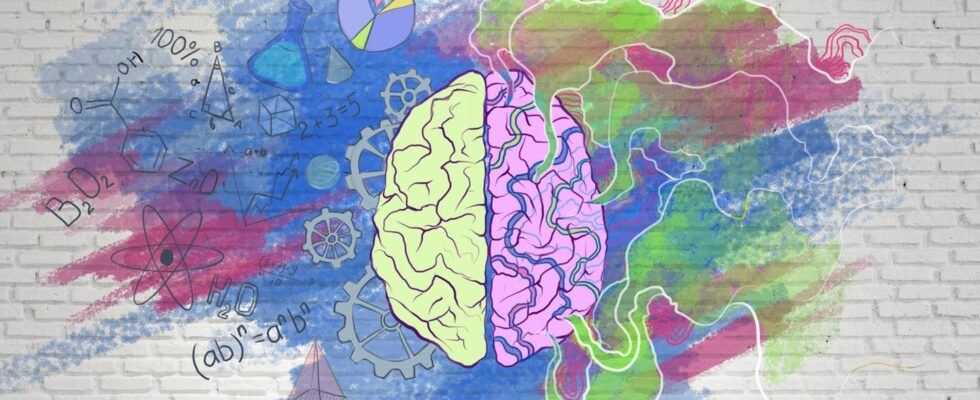test
Which part of your brain dominates your perception?
© Who is Danny / Shutterstock
We all perceive things differently and also process impressions in different ways. This is mainly due to whether our left or right hemisphere is more dominant.
Our brain is a real miracle that works like a computer – and can also process emotions and sensory impressions at the same time. Particularly fascinating: the two halves, which have very different tasks and complement each other so perfectly. The whole thing is called the hemisphere model.
Left and right brain hemispheres: what are their roles?
First, there is the left hemisphere of the brain, which is responsible for everything rational, i.e. above all logical and analytical thinking, and to a large extent for our language. The main focus is on putting together, understanding and analyzing words. It is said that the left side of the brain only has access to our waking consciousness, while the right side controls the unconscious. It is responsible for intuition and our emotions. It also has a part in language – namely the interpretation of sound patterns, i.e. rather hearing and perceiving.
So if we stress a word in two different ways, for example, the left hemisphere probably won’t notice a difference. The right side, however, is able to understand and interpret the different accents.
How we perceive and process things says a lot about which half of our brain is more dominant. Of course, both sides work together in everyone – otherwise normal speech would not be possible, for example. But with most people there is a side that is stronger. If you want to know which half dominates your perception, take the test!
And which side is stronger on you? You will probably find yourself more clearly in one of the descriptions than in the other. In particular, the choice of profession and our hobbies often provide information here.
Sources used: Gesundheitsinformation.de, deutschlandfunknova.de

